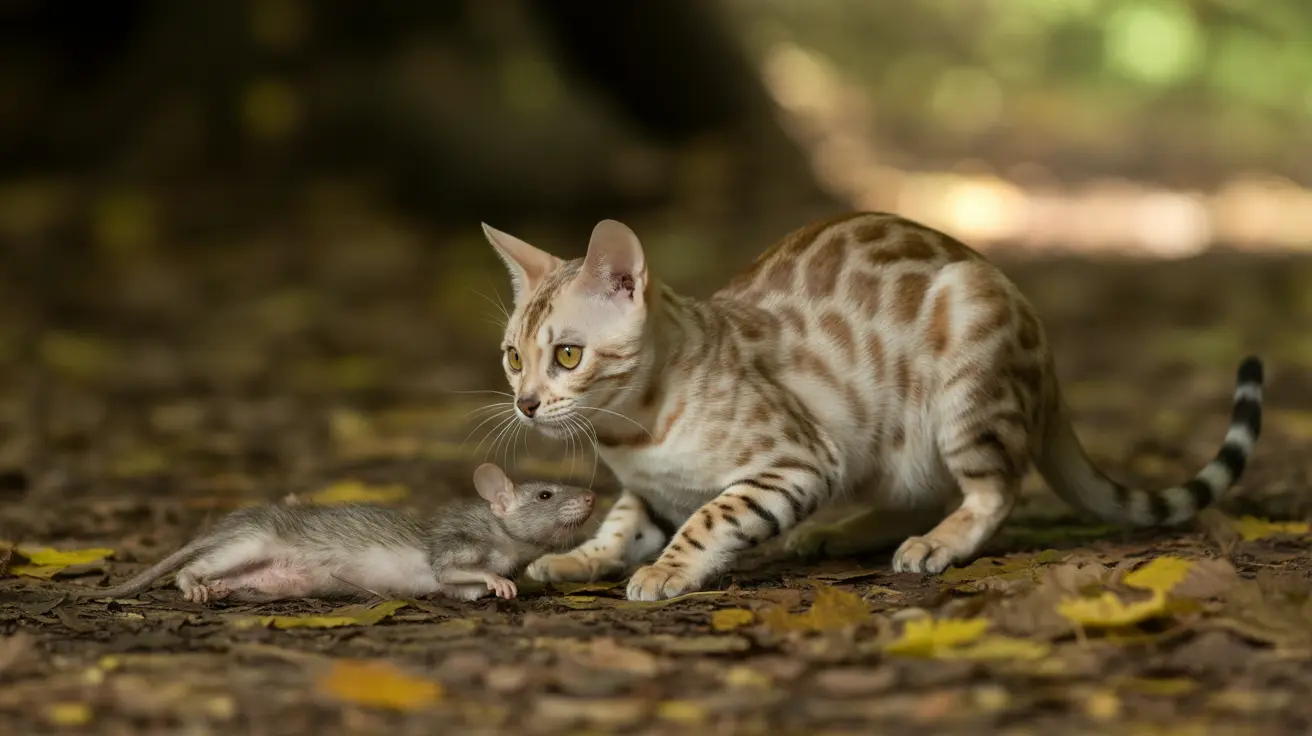When your cat presents you with a dead rat, it's important to act quickly and safely. While hunting is a natural feline behavior, the situation requires careful handling to protect both your pet and your family from potential health risks. This comprehensive guide will walk you through the necessary steps to take and important precautions to consider.
Understanding how to properly handle this situation can help prevent disease transmission and keep everyone in your household safe. Let's explore the immediate actions you should take, potential health concerns, and preventive measures for the future.
Immediate Actions After Your Cat Kills a Rat
Safety should be your primary concern when dealing with a dead rat. Here's what you need to do right away:
First, put on disposable gloves before handling anything. Using a shovel or plastic bag, carefully pick up the rat carcass without direct contact. Place it in a sealed plastic bag and dispose of it in an outdoor garbage bin. Never handle the rat with bare hands, as this could expose you to dangerous pathogens.
Next, thoroughly disinfect the area where the rat was found. Use a strong household disinfectant and ensure your cat is kept away during the cleaning process. Don't forget to sterilize any tools used during cleanup.
Health Risks and Disease Prevention
Rats can carry numerous dangerous diseases and parasites that pose risks to both cats and humans. Common concerns include:
- Leptospirosis
- Toxoplasmosis
- Bacterial infections
- Parasitic infections (roundworms, fleas, ticks)
If your cat has eaten any portion of the rat, monitor them closely for signs of illness such as:
- Lethargy
- Vomiting
- Loss of appetite
- Unusual behavior
- Diarrhea
Understanding Secondary Poisoning Risks
One of the most serious concerns when your cat kills a rat is the possibility of secondary poisoning. If the rat consumed rodenticide before being caught by your cat, your pet could be at risk of relay toxicosis. This condition can be fatal if not treated promptly.
Contact your veterinarian immediately if you suspect your cat has eaten a poisoned rat or if you notice any unusual symptoms. Time is critical in cases of potential poisoning.
Natural Hunting Behavior and Prevention
While hunting is instinctual for cats, you can help reduce their exposure to rats and associated risks by:
- Providing plenty of indoor enrichment activities
- Keeping your cat indoors, especially at night
- Securing potential entry points for rodents
- Using pet-safe rodent control methods
- Maintaining a clean yard free of food sources that attract rats
Safe Rodent Control Methods
If you're dealing with a rat problem, consider these pet-friendly alternatives to toxic rodenticides:
- Electronic rat traps
- Ultrasonic repellents
- Snap traps in protective cases
- Professional pest control services that use pet-safe methods
Frequently Asked Questions
What should I do immediately after my cat kills a rat to ensure safety and hygiene?
Wear disposable gloves, use a shovel or plastic bag to remove the rat, seal it in a plastic bag, and dispose of it in an outdoor bin. Thoroughly clean and disinfect the area where the rat was found, and wash your hands afterward, even if you wore gloves.
Can my cat get sick from killing or eating a rat, and what diseases should I watch out for?
Yes, cats can contract various diseases from rats, including leptospirosis, toxoplasmosis, and bacterial infections. They can also get parasites like roundworms, fleas, and ticks. Monitor your cat for symptoms like vomiting, lethargy, or unusual behavior.
Why do cats hunt rats even when they are well fed at home?
Hunting is an instinctual behavior in cats, regardless of how well-fed they are. This behavior is driven by their natural predatory drive and provides mental stimulation and exercise, not necessarily by hunger.
How can I protect my cat from rodent poison if it kills or eats a poisoned rat?
Contact your veterinarian immediately if you suspect your cat has eaten a poisoned rat. To prevent this, avoid using rodenticides, opt for pet-safe alternatives, and keep your cat indoors where possible.
What are safe and pet-friendly methods to control rats if I have a cat at home?
Use electronic rat traps, ultrasonic repellents, or covered snap traps that prevent pet access. Consider working with pest control professionals who specialize in pet-safe methods, and maintain a clean environment to discourage rat activity.
Remember, while cats are natural hunters, taking proper precautions when they kill rats is essential for everyone's safety. If you're ever uncertain about your cat's health after such an incident, don't hesitate to consult with your veterinarian.






